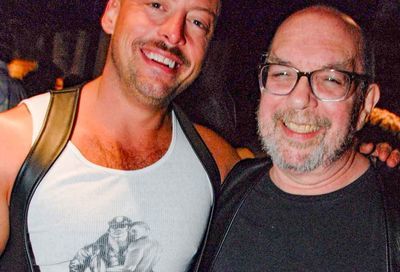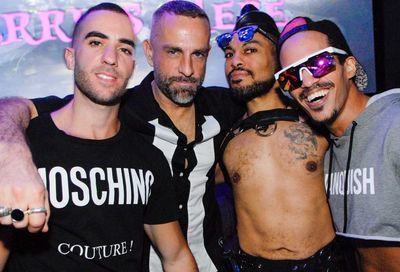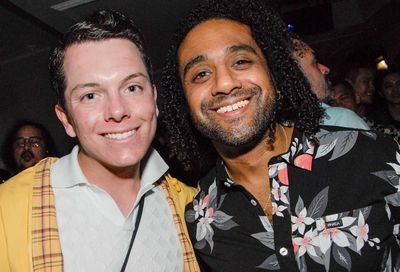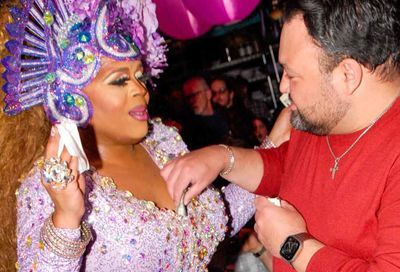Policing the Police
Commentary: Town Square
Relations between D.C.’s gay community and the police have come a long way in the past 50 years. Where vice cops once routinely entrapped gay men, the Metropolitan Police Department (MPD) now has an award-winning Gay and Lesbian Liaison Unit (GLLU).
It is important that we build on past advances rather than losing ground. Mayor Adrian Fenty’s cavalier approach to naming a new police chief was not reassuring. He consulted no one, despite having promised to do so, and conducted no nationwide search. He simply offered Cathy Lanier the job over breakfast.
The Gay and Lesbian Activists Alliance (GLAA) was unable to obtain a meeting with Lanier before her March 16 confirmation hearing, despite several attempts. She did phone me on March 12, and answered questions for about half an hour. Some of the GLAA concerns we discussed were:
1. Lanier wants to expand GLLU and assign its officers to each police district to ensure a citywide presence. But she agreed that the unit should continue to be centrally managed. We learned the week of the hearing that, while the unit’s regular officers were under the chief, its reserve officers were under the Third District. Lanier agreed that this made no operational sense, and promised to correct it.
2. It is imperative that MPD reinstate sensitivity training of veteran officers. Lanier has ordered the development of 10-minute in-service training videos for use during roll calls. That would be a good start.
3. Many officers routinely assume that transgender citizens are prostitutes. That is illegal profiling. It will take determined leadership to uproot transphobia in the MPD.
4. MPD’s Community-Police Task Force, on which I served as GLAA’s representative, conducted research on biased policing. MPD’s own contractor advised MPD to continue working with the task force, but former Chief Charles Ramsey disbanded it. Chief Lanier should re-establish it immediately. Instead, on March 14 a vicious letter went out from Lanier to the Office of Police Complaints (OPC) unfairly attacking OPC Executive Director (and task force member) Phil Eure and refusing to reinstate the task force. Lanier’s office later said the letter had been signed by auto-pen without her final approval, and that she was unhappy with its tone. We were glad to hear that, but her office’s issuance of the letter did not display competence or respect for independent police review.
5. In the first 10 weeks or so after Lanier took over, MPD exonerated 27 of 28 officers who did not cooperate with OPC investigations. Lanier said that requiring officers to sign statements taken at OPC is inconsistent with the union contract and fair labor practice, and that Eure and the police union are trying to work something out. If the impasse is not resolved, action by the City Council may be needed to preserve the integrity of our police accountability system. OPC’s existence as an independent police review agency is due largely to the efforts of a coalition of civil rights groups including GLAA, the D.C. branch of the NAACP, ACLU of the National Capital Area, and the National Black Police Association.
6. Over the years, one problem officer has assaulted or threatened several openly gay officers, yet remains on the force. Chief Lanier said the law requires disciplinary action within 90 days of an incident. While she vows not to repeat the foot-dragging of the past, we are appalled that an officer who has repeatedly demonstrated his unfitness to wear the badge still cannot be fired.
7. MPD is late with the implementing regulations for the First Amendment Assemblies Act of 2004, which was passed to prevent a repeat of the police abuses displayed in a mass arrest at Pershing Park in September 2002. Lanier reports that she has approved three sections of rulemaking, and agrees that an earlier MPD description of public protests as ”criminal activity conducted under the guise of First Amendment activities” is unacceptable. If the problems of earlier drafts are not corrected, we will ask the Council to write and impose regulations directly.
GLAA had too many unresolved concerns to be comfortable endorsing Lanier. We advised on March 16 that the mayor start over and conduct a proper search. It quickly became clear, however, that Lanier has the votes to win confirmation, though GLAA’s concerns were well received by Councilmember Phil Mendelson’s Committee on Public Safety and the Judiciary.
GLAA does not seek an adversarial relationship with the police. We will continue working with MPD and our allies to defend both the public safety and the civil liberties of all Washingtonians.
Richard J. Rosendall is vice president for political affairs of GLAA. He can be reached at rrosendall@starpower.net.
Support Metro Weekly’s Journalism
These are challenging times for news organizations. And yet it’s crucial we stay active and provide vital resources and information to both our local readers and the world. So won’t you please take a moment and consider supporting Metro Weekly with a membership? For as little as $5 a month, you can help ensure Metro Weekly magazine and MetroWeekly.com remain free, viable resources as we provide the best, most diverse, culturally-resonant LGBTQ coverage in both the D.C. region and around the world. Memberships come with exclusive perks and discounts, your own personal digital delivery of each week’s magazine (and an archive), access to our Member's Lounge when it launches this fall, and exclusive members-only items like Metro Weekly Membership Mugs and Tote Bags! Check out all our membership levels here and please join us today!




















